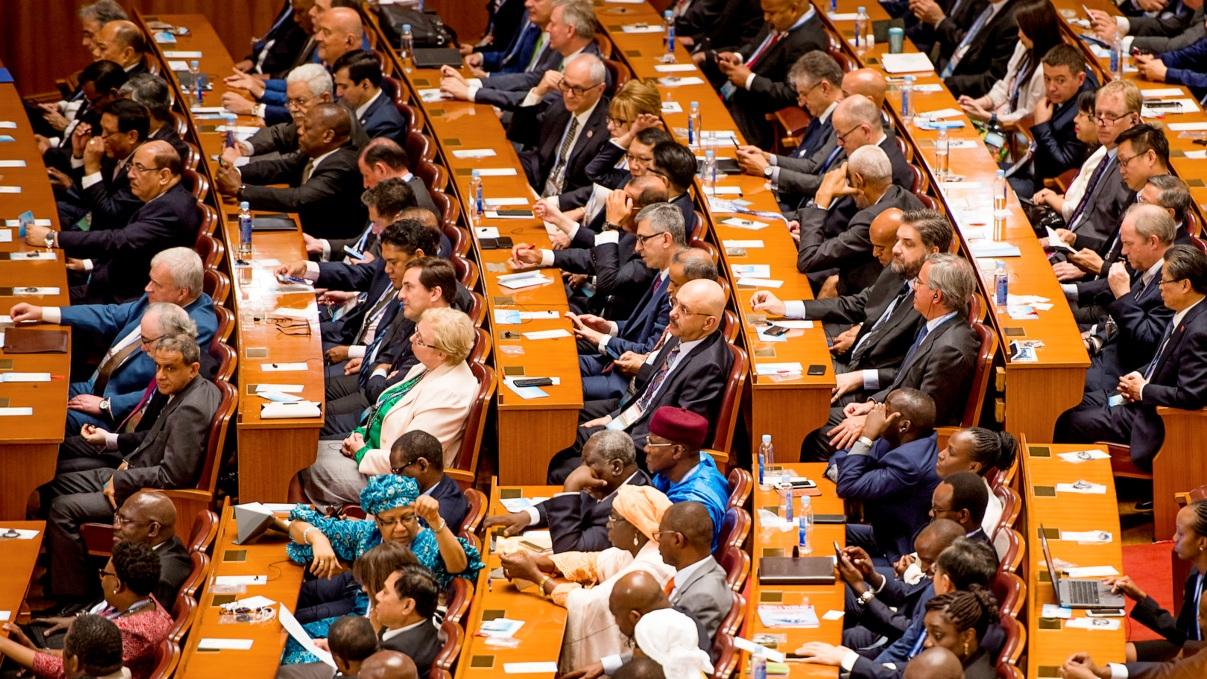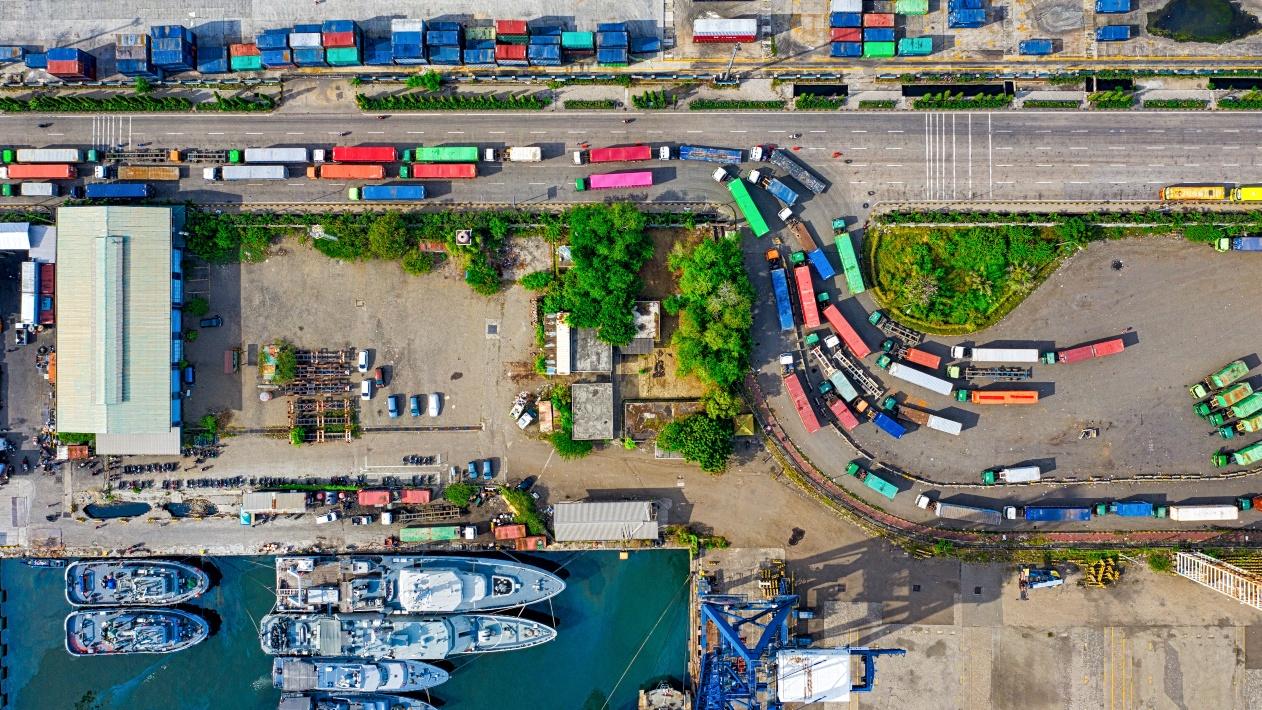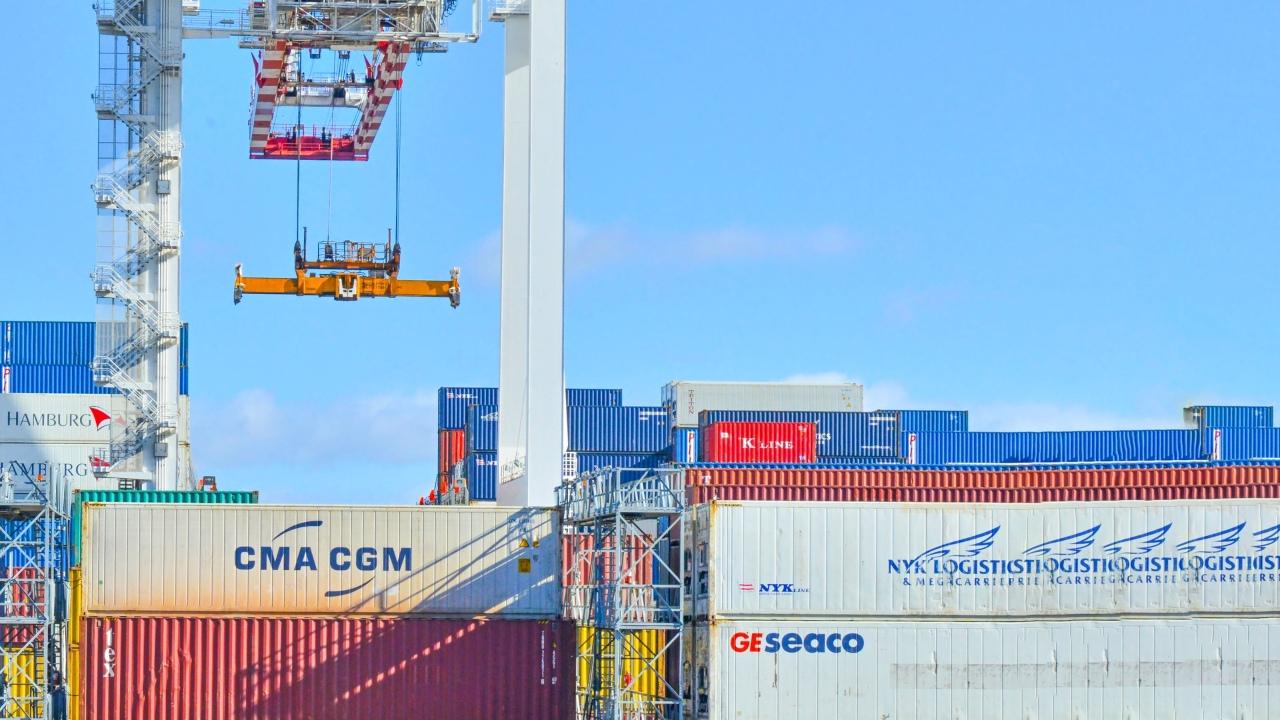Russia has increased its influence in Africa by capturing the allegiance of politically isolated leaders. But rather than solely pursuing private sector interests, relationships are sought to serve Moscow’s geopolitical agenda. With Russia expected to intensify African collaborations to mitigate international isolation following its invasion of Ukraine, African civil society should push for greater governance and accountability.
State capture is a particularly nefarious form of systemic corruption, which has defined certain African countries in recent years. It entails private individuals gaining such a profound influence over senior officials that state institutions prioritise the welfare of those private interests over the public good.
There is a triangular pattern to such arrangements. The external partners and the colluding political actors profit handsomely – while the public foots the bill.
Its most prominent recent illustration was the “capture” of President Jacob Zuma’s administration in South Africa by the Gupta brothers, with an estimated cost of US$100 billion to the South African economy.
While typically applied to predatory private sector interests, the modalities of state capture aptly characterise the way Russia has gained influence in Africa in recent years by opportunistically capturing the allegiance of a series of politically isolated leaders. In the process, Kremlin-linked individuals and companies have gained access to natural resources and opaque contracts.
A troubling twist in the Russian version of state capture is that Russia also gains influence over the policies of the captured state, which become subservient to Moscow’s geostrategic interests.
Putin’s African partners
A prime example of Russian state capture in Africa is the Central African Republic (CAR). President Faustin-Archange Touadéra brokered a deal with Russia for arms, mercenaries and a protection force in return for access to CAR diamond and gold mines. A Russian, Valery Zakharov, is now the country’s national security advisor. Once Russia gained control of the state, CAR’s longtime supporter, France, was compelled to pull out, further advancing Moscow’s geostrategic interests.
The roughly 2,000 mercenaries from the notorious Wagner Group, a shadowy paramilitary force linked to Russian defence intelligence, have been less focused on their professed role – stabilisation – than protecting the mines and keeping Touadéra in power. This includes tilting the scales of the December 2020 presidential election while Wagner-trained local cadres target opponents of Touadéra and Russia on social media.
Absent oversight, Wagner’s human rights abuses have mounted. Wagner has even taken a threatening posture against the UN peacekeeping mission in the country. Government officials who have raised concerns about undue Russian influence have been fired and threatened. Opposition leaders have fled the country in fear.
So, while Touadéra and the Russians are thriving under this arrangement, ordinary citizens face rampant insecurity, worsening corruption and reduced civil liberties.
This highlights another problem with Russian state capture – once in place, the benefitting parties are loathe to let go. Extricating Russian entanglements from CAR’s political, economic and security sectors will require an immense effort.
In Sudan, Russia has provided political cover for the unpopular military government led by Lt. General Abdel Fattah al-Burhan, which seized power in a coup and has attempted to jettison a planned transition to civilian rule. Russia’s Wagner forces have reportedly encouraged the military to crackdown more forcefully on the protests, which has resulted in several hundred deaths since 2019. Russian disinformation aims to bolster the junta and discredit the protesters.
Russia has especially close ties with the junta’s deputy, Mohamed Hamdan Dagalo, known as Hemedti, with whom the Wagner Group has been partnering to traffic gold from western Sudan. Hemedti went to Moscow in the early days of Russia’s invasion of Ukraine seeking more aid, underscoring the degree to which Russia had captured the Sudanese junta. As part of the arrangement, Moscow is to gain a 25-year lease for naval port access in Port Sudan on the Red Sea.
While this relationship serves the political interests of the junta and Moscow, it perpetuates an autocratic regime despised by the public. It also cuts Sudan off from the investment, trade, aid and debt relief that Sudan needs from international financial institutions to pull Sudan out of its economic tailspin. This includes 350% inflation, a plunging currency and a projected debt of US$1.2 trillion by 2025.
Russia is the main external backer of another military junta – in Mali. Russian disinformation was instrumental in fomenting protests leading up to the coup ousting democratically elected president Ibrahim Boubacar Keita in August 2020. State broadcasters now routinely parrot RT talking points and leading foreign media outlets have been banned. An estimated 1,000 Wagner mercenaries are presently in Mali helping to prop up the junta (for a fee of US$11 million per month).
Adopting the anti-Western posture of their Russian patrons, the junta has taken strategically damaging decisions resulting in the withdrawal of 5,000 French and EU troops in the face of a militant Islamist insurgency that has escalated since the junta seized power. As in CAR, human rights abuses by Wagner and Malian forces have worsened and opposition voices are increasingly marginalised.
What each of these cases reveal is that Russian state capture in Africa deals a losing hand to African citizens, who pay a dear cost in lost sovereignty, democracy, security and economic development.
Africa’s weak underbelly to external influence
There are at least a half dozen other African leaders willing to sacrifice the interests of their compatriots for the personal benefits that come from Russian “partnership”. Russia can be expected to intensify its cultivation of such African collaborations as it seeks to mitigate international isolation following its invasion of Ukraine.
It is not by chance that the African leaders most attracted to Russia’s boa-like embrace are those with the weakest democratic checks and balances. The median Freedom Score for this group is 23 on Freedom House’s 0-100 scale – 20 points lower than the African median. These leaders can pursue ruinous deals for their populations because they face little accountability.
They are also among the most corrupt regimes on the continent. The above-mentioned partners, along with those in Angola, Cameroon, Republic of Congo, Guinea, South Sudan and Uganda – also on Russia’s courtship shortlist – all fall in the bottom quartile of Transparency International’s annual corruption perceptions index. Revealingly, so does Russia.
Undemocratic, corruption-prone regimes, then, are Africa’s weak underbelly, leaving it vulnerable to Russia’s predatory interests.
Even countries with more robust democratic institutions are not immune, as South Africa’s brush with state capture shows. Russia made a strong play to bring Jacob Zuma into its fold. The US$76 billion nuclear power deal that Zuma signed with the Russians in 2014 was widely seen as a boondoggle intended to enrich Zuma cronies and their Russian interlocutors at the expense of the South African public. The deal was nixed soon after President Cyril Ramaphosa came into office. Nonetheless, Russian disinformation continues to promote Zuma’s ANC faction.
Helping citizens push back when leaders are captured
South Africa was able to extract itself from the jaws of state capture. How it did so holds lessons for the rest of Africa.
Most important was that most South Africans maintained the strong conviction that state capture was not okay. They refused to let these modalities become normalised. This was reinforced by a relentless free press that investigated and exposed the transgressions of the corrosive Gupta-Zuma and Russia-Zuma networks. Accountability requires information.
South Africa also had the benefit of an independent Public Prosecutor’s Office, which probed, verified and published their findings for the public to absorb. These actions were backed up by unintimidated courts who have shown that the former president is not above the law.
True, many African countries do not enjoy such robust institutions of accountability. But most have some oversight mechanisms in place as a starting point. A priority is to empower and strengthen these institutions.
Where regimes have been captured or compromised, change is unlikely to come from within. Accountability, instead, depends on the commitment and resiliency of African civil society. They will need to build reform coalitions to sustain pressure – and deserve diplomatic support from African regional bodies and international democratic actors. Civil society groups have an important advantage; they represent the majority of the population exploited by state capture.
An autonomous electoral commission, a merit-based civil service, a private sector based on the rule of law, a professional military and an independent central bank are all institutions that can individually and collectively strengthen accountability.
The pushback against state capture, therefore, is simultaneously a push for better governance. Putin’s vision for Africa, in contrast, is a return to big man rule – just that the big man is in Moscow.
Photo: Russia-Africa Summit. Ugandan President Yoweri Museveni welcomed by President Vladimir Putin of Russia at the official dinner in honour of Heads of State and Government attending the Russia-Africa Summit in Sochi. Credit: GovernmentZA. Licensed under CC BY-ND 2.0.






Wow, Joseph. This is so well written – as in analysis, using the language we need to use, relearn, if we can resist state capture in the guise of country advancement. These r the loan sharks of vulnerable nations tempted to work themselves out of debt & end up working themselves into dependency. To a country where exploitation is a mark of superiority. Thank you, Sir. Resist like Ukraine, pushback with Zelensky!!
When strung together, the anecdotes make the threat of Russian state capture in Africa palpable — however, the last section on citizen pushback is a gem that should be circulated/understood more widely. African analysts and democracy advocates rarely consider the types of institutions that need to be functional to build a state with the legitimacy and capability to withstand “capture” by powerful external political actors, whether private-sector, state-based, criminal, or violent insurgent. That takes more effort, taxation, investment, and human capital than many African states can currently muster — particularly in the Sahel, Coastal West African, and Central African regions. Thanks for making this post such an uncommonly complete conceptualization of the Russia/state capture problem in Africa. “
Russia is a member of the BRICS group of emerging economies, along with Brazil, India, China and South Africa. Its economy has grown steadily in recent years, and its influence in Africa has increased accordingly.